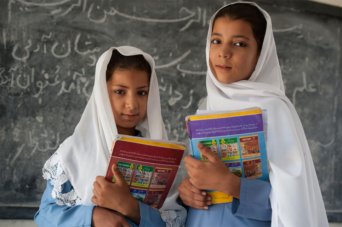- About
- Topics
- Picks
- Audio
- Story
- In-Depth
- Opinion
- News
- Donate
- Signup for our newsletterOur Editors' Best Picks.Send
Read, Debate: Engage.
Women and young girls are literally invisible in conservative Afghan society, where many of their fundamental rights are denied. But this week, female university students in the restive Kandahar province caught the eye of the nation and revived hopes for the future of this war-struck country.
The people in this part of the country, often referred to as the ‘birthplace’ of the Taliban movement, now seem to have learned the value of women and girls’ education.
In a country where it remains a cultural taboo in many far-flung areas to even allow girls above a certain age to leave home and join school, the site of elderly and young men proudly sharing the stage with their newly-graduated female members of the family was simply astonishing. After receiving their graduation certificates, the female students at the city’s Mirwais Neka University seemed overwhelmed with the love, respect and freedom they received from their male members of the family.
Not long ago, the world witnessed horrifying images coming out of Afghanistan, depicting militants beating and even stoning to death women and girls. Even though law and order remain fragile here, sixteen years after the fall of the Taliban regime, thanks to the international support and local craving for education, positive changes are emerging, albeit not perfectly.
Women’s literacy in Afghanistan is among the lowest in the world – about 14%. Considering the fact that only 3% of girls previously went to school and now about 36% receive education, it is a lot.
Of late, Afghans have been inspired to seek education and knowledge by many local success stories. The global icon for girls’ education Malala Yosufzai is one of them. Unlike her home country Pakistan, where many still deem her ‘West’s agent’, Yosufzai is adored by the Afghans.
Thanks to the relative peace, the capital city of Kabul remains a secluded yet safe place for girls’ education to some extent. The scenes at Kandahar’s Mirwais Neka University, therefore is a monumental step forward in terms of the shifting mind-set for girls’ education in Afghanistan.
